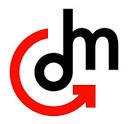Iowa business economic outlook drops, but remains positive overall

Optimism among Iowa businesses took a drop in the third quarter, but sentiment is still positive.
The Iowa Business Council (IBC) today released results of its third-quarter Overall Economic Outlook Survey Index (OSI), which read 57.3, eight points lower than the second-quarter reading and four points below a year ago.
“We’re still optimistic, though maybe more cautiously so right now,” said Elliott Smith, executive director of the IBC. “I was a little surprised by the amount of decline in a couple of our indicators – capital spending and employment. I thought maybe we’d see a little more moderation there.”
The index is derived from a survey completed by 19 corporate members of the IBC during the second half of August. A reading above 50 indicates positive sentiment.
The capital spending index dropped to 54 from 64 last quarter, and the employment figure fell to 53 from 63. The sales index fell to 65 from 69, which is more in line with the moderate decrease Smith expected from each of the indicators.
“The sales numbers only pulled back a few points, and it remains in pretty solid positive sentiment territory,” he said. “That hopefully bodes well for the capital spending and employment down the line. We really hope that the results here for this quarter are more of an aberration in what has otherwise been a pretty slow and steady growth pattern.”
The overall index is at its lowest level since a 54.3 reading in the first quarter of 2010, and had steadily risen since bottoming out at a reading of 35.3 in the first quarter of 2009.
Reasons for the decline could be traced to a lack of confidence, Smith said, with the federal government’s budget battle, uncertainty in President Barack Obama’s plan for the economy to be unveiled next week and the fluctuating stock market.
In national economic news today, the Bloomberg Consumer Comfort Index dropped to a reading of minus 49.1 in the week ended Aug. 27, compared with a reading of minus 47 the previous week. First-time applications for unemployment benefits decreased by 12,000 to 409,000 that week, according to numbers released by the U.S. Department of Labor.








